Some Castlevania Halloween Aesthetics
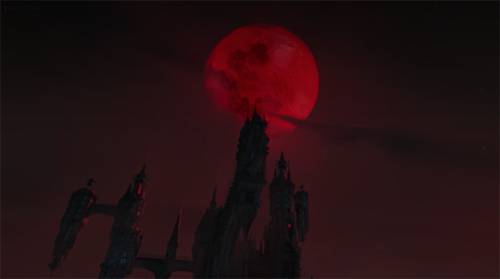


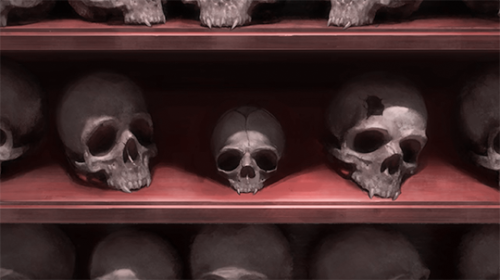
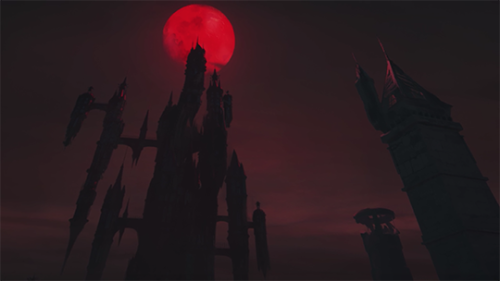
some castlevania halloween aesthetics
More Posts from Cardinalfandom and Others
Hi, Sleuth! I've been rereading LS' 13 suspicious incidents, and in Sub file B, there seems to be a side B to every incident. I wonder what do you make of them? Do you think the various reptile mentions are references to the overlying plot that concerns the Bombinating Beast? Or do you think it could have something to do with Monty's reptiles? And what do you think the last, nine-lettered word would be? Thank you so much for your time, keep up the amazing work!
Hi, @illiteraven! So sorry to keep you waiting. My Ebook version of “File Under: 13 Suspicious Incidents” doesn’t feature the “Side B solutions”, so I had to leave your question on the backburner for months. Now that I’ve got a copy in my hands, I’ll elaborate.
At first glance these “solutions” which don’t connect to any mysteries seem to be one of Daniel Handler’s literary experimentations. We are skipping to the endings of stories with no proper context. “All The Wrong Questions” is a series of mystery novels, so this could be a commentary on the temptation to skip ahead to the end in order to read the solution.
Then again, some of the Side-B snippets do seem to connect to the mystery of the Bombinating Beast somehow, and there are recurrent characters and themes from one snippet to the other. So maybe they’re remnants of subplots Daniel Handler considered for “All The Wrong Questions” even though they didn’t make it to the final draft.
Deep Mine:Dagwood is most likely a reference to Dagwood Bumstead, a character from famous comic-strip Blondie (Link), who gave his name to the Dagwood sandwich. As a gourmet, Handler would know that. Dagwood is also a pun on a character from its Side-A story Dagmar. The buzzing sound is reminiscent of the Bombinating Beast, as well as the ondulations of the Great Unknown. The Museum could also be a reference to the Museum of Objects.
Backseat:Please refer to my commentary on “Missing pets”.
Quiet Street:The V.F.D. reference is a reminder of the organization’s interest in Stain’d-by-the-Sea, as evidenced later by Lois Dressing’s observation of Lemony’s progress.
Beneath The Street:Secret underground passageways are a specialty of V.F.D. The mention of buzzing sounds also ties with the “Deep Mine” Side-B story.
Small Courtyard:Another mention of Violetta and Dagwood. Apparently their father feared Stain’d-by-the-Sea ‘s stone buildings would eventually get destroyed by “violent animal life”. It seems like he knew the Bombinating Beast was coming. According to Hangfire in the last ATWQ book, a lot of adults actually knew what he was dying but fled out in terror or were assassinated.
Missing Pets:These tanks were probably the same ones Hangfire used to raise/grow his experiments. It’s possible the reptiles were also used as genetic material to manufacture an imitation of the legendary Bombinating Beast. Mrs Flammarion is likely a member of Inhumane Society, just like her husband, and could have been tasked with providing the fish tanks and reptiles.
Large Meal:The salted meat recalls Qwerty’s and Hangfire’s interest in caviar, which also requires a great deal of salt. The local reptilian delicacies could have been a convenient way to explain the disappearance of reptiles in the area, in order to dispose of their bodies after Hangifre’s experiments.
Other Name:The initials are likely “I.S.” or “A.F.” as Inhumane Society and Armstrong Feint are known to steal honeydew melons from Partial Foods.
Sand And Shore:Apparently the abandonned boats in the empty sea are still good for something. Perhaps Cleo Knight could look into that to save her city from economic disaster.
Poor joke:Pretty much what it says on the tin.
Message recorded:Members of V.F.D. seem to carry evidence in their hats, which ties in with a shady adoption deal Arthur Poe is later guilty of in “A Series Of Unfortunate Events”.
Nervous Wreck:“Mother of Icarus” seems to be a parody of “Icarus’s Mother” by Sam Sherpard (1965). The play concerns two men trying to send a secret message during a picnic so their friends don’t realize they intend to crash a plane. So the fact that Lemony is pressing us not to look for a secret message is ironic.
Last Word:The word uttered by the mysterious figure in “Shouted Word” is commonly theorized to be “Ellington”, which has nine letters, so it would fit. Hangfire was probably looking for his daughter in the city, trying to convince her to follow his orders again in exchange for “sparing” her father’s life.


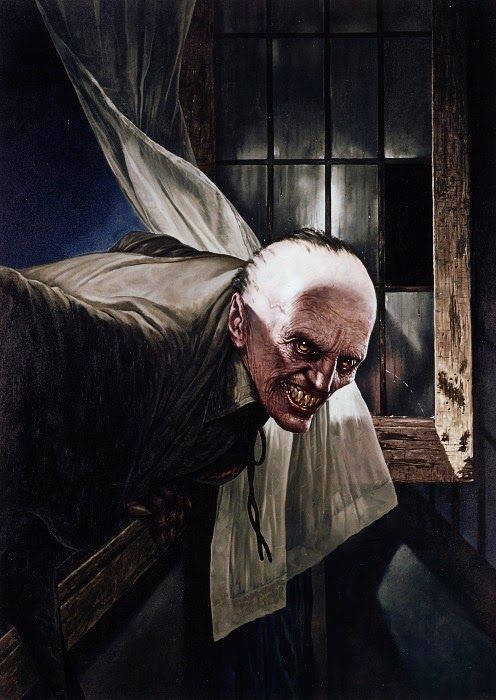
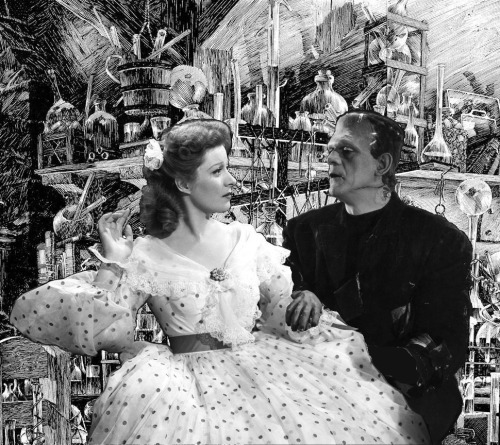
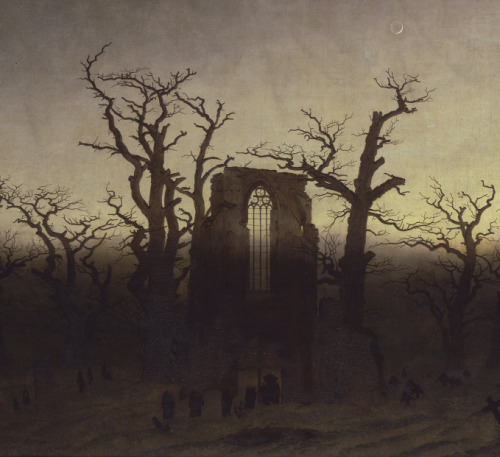
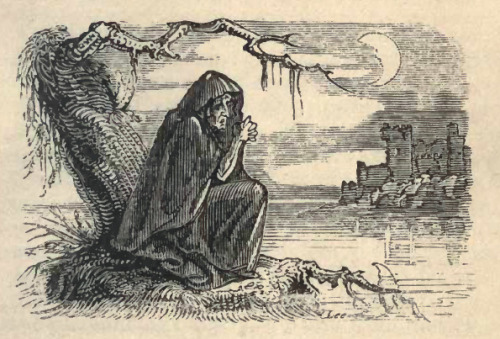
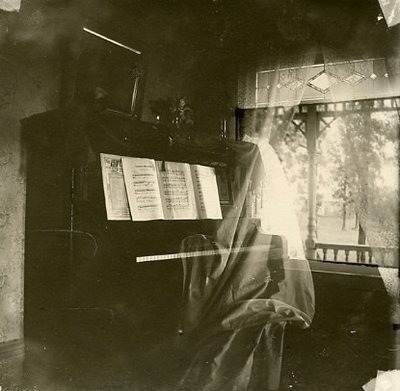
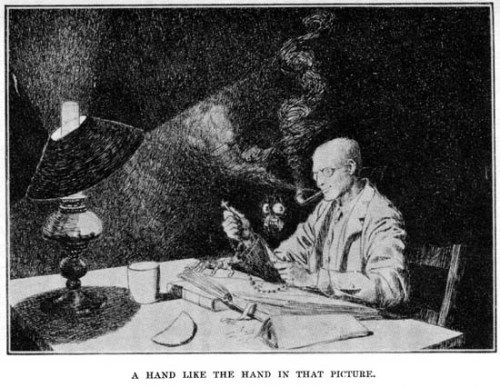
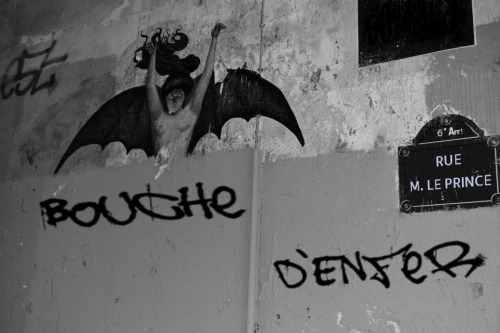
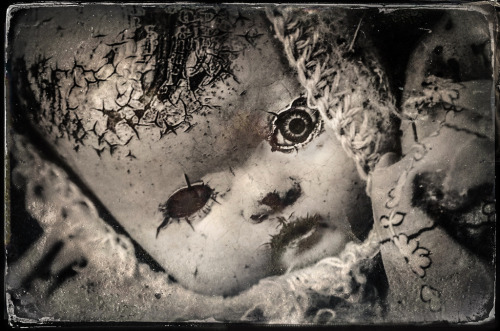
Index of Frightful Friday Posts 101–200
Young Goodman Brown | Nathaniel Hawthorne
The Devil and Daniel Webster | Washington Irving
The Cigarette Case | Oliver Onions
The Readjustment | Mary Austin
No. 5 Branch Line: The Engineer | Amelia Edwards
The Easter Egg | Saki
The Lottery | Shirley Jackson
The Secret of Kralitz | Henry Knutter
Mother of Toads | Clark Ashton Smith
Old Garfield’s Heart | Robert E. Howard
The Outsider | H.P. Lovecraft
The Ghosts | Lord Dunsany
The Man-Eating Tree | Phil Robinson
The Reckoning | Lafcadio Hearn
Wild Swimming | Elodie Harper
Neighbourhood Watch | Greg Egan
The Bus-Conductor | E.F. Benson
The Nightmare Room | Arthur Conan Doyle
The Devil of the Marsh | H.B. Marriott-Watson
Weeds | Stephen King
Djinn and Bitters | Harold Lawlor
A Night of Horror | Dick Donovan (aka James Edward Preston Muddock)
Leiningen Versus the Ants | Carl Stephenson
The Vampire of Croglin Grange | Augustus Hare
Lost Hearts | M.R. James
Round the Fire | Catherine Crowe
The Music of Erich Zann | H.P. Lovecraft
Sir Dominick’s Bargain | J. Sheridan Le Fanu
Pigeons from Hell | Robert E. Howard
The Medici Boots | Pearl Norton Swet
The Toll-House | W.W. Jacobs
Pride & Prometheus | John Kessel
The Shadowy Third | Ellen Glasgow
Was It a Dream? | Guy de Maupassant
The Open Door | Margaret Oliphant
Three Skeleton Key | George G. Toudouze
Man-Size in Marble | Edith Nesbit
Silent Snow, Secret Snow | Conrad Aiken
A Sound of Thunder | Ray Bradbury
The Gateway of the Monster | William Hope Hodgson
Ofodile | Chimamanda Ngozi Adichie
Repossession | Lionel Shriver
Light and Space | Ned Beauman
Stairs | Penelope Lively
Dark Christmas | Jeanette Winterson
How Fear Departed the Long Gallery | E.F. Benson
Thurnley Abbey | Perceval Landon
To Be Read at Dusk | Charles Dickens
The Tractate Middoth | M.R. James
The Truth, The Whole Truth, And Nothing But The Truth | Rhoda Broughton
Lost in a Pyramid, or the Mummy’s Curse | Louisa May Alcott
The Sumach | Ulrich Dabney
The Pavilion | Edith Nesbit
The Flowering of the Strange Orchid | H.G. Wells
At the Dip of the Road | Mary Louisa Molesworth
At Chrighton Abbey | Mary Elizabeth Braddon
Banshees and Warnings | Lady Gregory
At the End of the Corridor | Evangeline Walton
The Tree’s Wife | Mary Elizabeth Counselman
Pickman’s Model | H.P. Lovecraft
The Dead Man | Fritz Leiber
The Canal | Everil Worrell
The Return of the Sorcerer | Clark Ashton Smith
The Child That Went with the Fairies | J. Sheridan Le Fanu
The Piano Next Door | Elia W. Peattie
The Miniature | J.Y. Akerman
The American’s Tale | Arthur Conan Doyle
The Death’s Head | Friedrich Laun
The Spectre-Barber | Johann Karl August Musäus
The Family Portraits | Johann August Apel
The Storm | Sarah Elizabeth Utterson
The Invisible Girl | Mary Shelley
The Botathen Ghost | R.S. Hawker
The Whisperers | Algernon Blackwood
The Curse of Vasartas | Eva Henry
The Lost Door | Dorothy Quick
Canon Alberic’s Scrapbook | M.R. James
The Mysterious Mummy | Sax Rohmer
Dagon | H.P. Lovecraft
Strange Event in the Life of Schalken the Painter | J. Sheridan Le Fanu
The Poor Ghost | Christina Rossetti
The Night Wire | H.F. Arnold
Old Aeson | Arthur Quiller-Couch
The Feather Pillow | Horacio Quiroga
Fingers of a Hand | H.D. Everett
The Tale of Satampra Zeiros | Clark Ashton Smith
The Story of Baelbrow | Kate & Hesketh Prichard
The Jelly-Fish | David H. Keller
The Ebony Frame | Edith Nesbit
The Man of Science | Jerome K. Jerome
The Open Window | Saki
The Hall Bedroom | Mary Wilkins Freeman
No. 252 Rue M. le Prince | Ralph Adams Cram
The Weird Violin | Anonymous
The Ghost’s Summons | Ada Buisson
The Doll’s Ghost | F. Marion Crawford
The Canterville Ghost | Oscar Wilde
The Tapestried Chamber | Sir Walter Scott
The Gorgon’s Head | Edith Bacon
The Empty House | Algernon Blackwood
For the first one hundred stories, please visit: Index of Frightful Friday Posts 1–100
WEBSITES FOR WRITERS {masterpost}
E.A. Deverell - FREE worksheets (characters, world building, narrator, etc.) and paid courses;
Hiveword - Helps to research any topic to write about (has other resources, too);
BetaBooks - Share your draft with your beta reader (can be more than one), and see where they stopped reading, their comments, etc.;
Charlotte Dillon - Research links;
Writing realistic injuries - The title is pretty self-explanatory: while writing about an injury, take a look at this useful website;
One Stop for Writers - You guys... this website has literally everything we need: a) Description thesaurus collection, b) Character builder, c) Story maps, d) Scene maps & timelines, e) World building surveys, f) Worksheets, f) Tutorials, and much more! Although it has a paid plan ($90/year | $50/6 months | $9/month), you can still get a 2-week FREE trial;
One Stop for Writers Roadmap - It has many tips for you, divided into three different topics: a) How to plan a story, b) How to write a story, c) How to revise a story. The best thing about this? It's FREE!
Story Structure Database - The Story Structure Database is an archive of books and movies, recording all their major plot points;
National Centre for Writing - FREE worksheets and writing courses. Has also paid courses;
Penguin Random House - Has some writing contests and great opportunities;
Crime Reads - Get inspired before writing a crime scene;
The Creative Academy for Writers - "Writers helping writers along every step of the path to publication." It's FREE and has ZOOM writing rooms;
Reedsy - "A trusted place to learn how to successfully publish your book" It has many tips, and tools (generators), contests, prompts lists, etc. FREE;
QueryTracker - Find agents for your books (personally, I've never used this before, but I thought I should feature it here);
Pacemaker - Track your goals (example: Write 50K words - then, everytime you write, you track the number of the words, and it will make a graphic for you with your progress). It's FREE but has a paid plan;
Save the Cat! - The blog of the most known storytelling method. You can find posts, sheets, a software (student discount - 70%), and other things;
I hope this is helpful for you!
(Also, check my blog if you want to!)
I need people to stop blaming the death of movies on “quips”. A quip is just a funny line of dialogue. That’s all. Like I just saw a post talking about quips and the death of movies and brought up Pirates of the Caribbean as an example of a better movie and yes it is but also that movie is FULL OF QUIPS. I just rewatched The Princess Bride. It’s all quips. Every single line. And it’s a masterpiece.
Movies suck when people don’t care about the art they’re making. That includes them not caring about their quips. Which is why a lot of comic relief dialogue ALSO sucks now. But the problem isn’t that funny dialogue exists.
Who burned down the Baudelaire mansion?

The series ended on an island but its bad beginning is still rife with controversy, confusion and contempt. As of today, we have no idea how the Baudelaire fire happened, or who escaped it, or why it was so important. In one of the most infuriating and frustrating pieces of dialogues Daniel Handler has ever written, we, the readers, are denied any answer to this mystery:
Klaus knelt down beside his sister, and stared into the villain’s shiny eyes. “You’re the one who made us orphans in the first place,” he said, uttering out loud for the first time a secret all three Baudelaires had kept in their hearts for almost as long as they could remember. Olaf closed his eyes for a moment, grimacing in pain, and then stared slowly at each of the three children in turn. “Is that what you think?” he said finally. “We know it,” Sunny said. “You don’t know anything,” Count Olaf said. “You three children are the same as when I first laid eyes on you. You think you can triumph in this world with nothing more than a keen mind, a pile of books, and the occasional gourmet meal.” He poured one last gulp of cordial into his poisoned mouth before throwing the seashell into the sand. “You’re just like your parents,” he said, and from the shore the children heard Kit Snicket moan. [Lemony Snicket - The End, Chapter Thirteenth]
There are about a million different ways to interpret Olaf’s reaction:
Someone else was actually responsible for burning down the mansion.
A group of several people (including Olaf) burned down the mansion for different reasons.
Olaf did burn down the mansion but the Baudelaire parents’ death had nothing to do with the fire, as at least one of them escaped the fire.
Olaf was coerced into killing the Baudelaire parents and was only an accomplice to the murder
Olaf feels that Bertrand and Beatrice are responsible for their own death and that they essentially brought it upon themselves
Klaus is more or less right but Olaf just enjoys not leaving the Baudelaire orphans any closure or certainty on this topic as a final “screw you” to his enemies.
The ambiguity of the universe and the inability to acquire perfect knowledge are major themes throughout the series, and Olaf’s ambiguous response is a testament. Nevertheless, there seems to be a kind of poignant sincerity in Olaf’s flippant dismissal. This is a dying man who has nothing left to lose; why would he lie? If a drama-queen has to make a final speech, said drama-queen uses it to send a deeply personal message. And the message here is that Klaus is… not wrong, exactly, but that his understanding of his parents’ death is biased and simplistic. Let’s take some time to examine Olaf’s point of view on the day of the Baudelaire fire.
Simply put: what the hell happened?
Читать дальше
I just realized, I just bloody realized, Moist Von Lipwig’s story arc is a game of Monopoly through the eyes of a conman going through the board and winning all the pieces.
He has the top hat, the dog, the train (which replaces to automotive in newer boards) the friendship of the Seamstress’ Guild (thimble), the walking iron called Gladys, the boot (he’s the incarnation of the Disc God Fedecks who has winged boots) and also the bag of money.* He goes to jail, but eventually gets to pass and go. He’s integral in the rehabilitation of civic buildings (post office, bank, mint, the acquisition of land to build a railway and then adding stations to said railway), the owner of up market private property, and also he invents paper money which everyone sort of thinks of as a bit of a game.
His very name, Moist Von Lipwig, is a pun about wearing a fake lip wig or mustache. Like so:

Lord Vetinari is quite literally using him to play a life size version of Monopoly with the city. And winning.
(Amendment: Adora with hear deadly footwear is also the shoe/boot.)
(* Alternates: Sam Vimes is boots, Gaspode and Beggars Guild is dog, Wheelbarrow is Harry King, Thimble is Seamstress Guild, Battlehsip/canon is Assassins Guild/Nobility, Money Bag is Thieves Guild, leaving Moist as Top Hat and Train. ANKH-MORPORK MONOPOLY, GIVE IT TO ME)
((edited for typos, too busy flailing))!!!!!

A photographer’s portrait in a mirror, a hundred years ago, Japan, ca. 1920. Text and image via Old Japanese Photos on Facebook
Black Horror Writers
Feeling a sudden desire, for whatever reason, to add some diversity to your bookshelf? Want to put a few bucks in the pockets of authors of color? Here’s a sampler platter to get you started.
Tananarive Due A film historian and a hot name in horror fiction, Due is an outspoken academic and prolific author. Start with The Good House, a 2003 Gothic, if you’re a fan of haunted house stories.
Wrath James White A former athlete, White is a hugely prolific author of hardcore horror. You can start with The Resurrectionist, but honestly, with more than 35 books to choose from, you’ve got plenty of options.
Victor LaValle LaValle has only written four novels so far, but they’re well-regarded and rich narratives. The Changeling is the usual recommendation for a starting place.
Brandon Massey Southern Gothic themes woven through horror, suspense and urban themes - that’s Massey’s brand in a nutshell. He’s plenty prolific, so you’ve got a bunch to choose from. Maybe start with this year’s new release, The Quiet Ones.
Chesya Burke A prolific short story writer, Burke writes speculative fiction and comic books. If you’d like a collection of stories all in one place, try out Let’s Play White. If you’d rather do a novel, read The Strange Crimes of Little Africa.
Jemiah Jefferson Do you like pulpy erotic vampire horror? You don’t have to answer that. Just buy Jefferson’s books if you do. There’s a series, so you’ll want to start at the beginning with Voice of the Blood.
Michael Boatman An actor and screenwriter, Boatman is also a novelist. He writes splatterpunk that Joe Lansdale has praised, which is as fine an accolade as they come. The Revenant Road was his first novel. He also shows up in a ton of anthologies, so keep an eye out.
Helen Oyeyemi Oyeyemi is a rising star, Shirley Jackson Award finalist, scholar, a world traveler, among other things. Her most recent book, Gingerbread, came out in 2019. I think it would not be out of line to compare her to Angela Carter.
Maurice Carlos Ruffin A debut novelist, Ruffin’s work launched with a bang in February. His book We Cast a Shadow was long-listed for a stack of prizes, and as a scathing cultural sci-fi horror, it fits right in with the work of folks like Jordan Peele.
Nnedi Okorafor A Nigerian-American writer, Okorafor writes for both children and adults, and her stories have earned a whole stack of awards. She is, for the record, also disabled. She’s got a whole stack of YA and adult books to choose from, as well as comic books. Binti and its sequel are as good a place as any to start, though.
Jewelle Gomez Philanthropist, playwright, poet, author – Gomez dabbles in a lot of things, and she’s an outspoken voice for LGBTQ women of color. Check out The Gilda Stories if you’ve always wanted to read about a black lesbian vampire (and, let’s be honest, who hasn’t?)
PS: When you order, don’t waste your money on Amazon. Instead, use a service like https://bookshop.org/ that distributes your hard-earned cash to independent booksellers. Keep money in your community.
PPS: I love Toni Morrison and Octavia Butler and also left them off the list because they’re well-known already and because I think it’s really important right now to support living artists, but you should check out their work too.


-
 undoiing reblogged this · 3 weeks ago
undoiing reblogged this · 3 weeks ago -
 theyearningfallen reblogged this · 2 months ago
theyearningfallen reblogged this · 2 months ago -
 nocturnalr4ven reblogged this · 3 months ago
nocturnalr4ven reblogged this · 3 months ago -
 nocturnalr4ven liked this · 3 months ago
nocturnalr4ven liked this · 3 months ago -
 afrotunada reblogged this · 6 months ago
afrotunada reblogged this · 6 months ago -
 washin3machin3 liked this · 6 months ago
washin3machin3 liked this · 6 months ago -
 quinticprisms liked this · 6 months ago
quinticprisms liked this · 6 months ago -
 hopesmoonchild liked this · 6 months ago
hopesmoonchild liked this · 6 months ago -
 lilsleds liked this · 6 months ago
lilsleds liked this · 6 months ago -
 angelaltars2004 liked this · 6 months ago
angelaltars2004 liked this · 6 months ago -
 candytuftcassowarries liked this · 6 months ago
candytuftcassowarries liked this · 6 months ago -
 kintotech reblogged this · 6 months ago
kintotech reblogged this · 6 months ago -
 torilori223 liked this · 6 months ago
torilori223 liked this · 6 months ago -
 hydrangeyes liked this · 6 months ago
hydrangeyes liked this · 6 months ago -
 cipherstuffs liked this · 6 months ago
cipherstuffs liked this · 6 months ago -
 1dragon-mustard1 reblogged this · 6 months ago
1dragon-mustard1 reblogged this · 6 months ago -
 blue-rosey reblogged this · 6 months ago
blue-rosey reblogged this · 6 months ago -
 itsrainingbooks liked this · 6 months ago
itsrainingbooks liked this · 6 months ago -
 toolipard liked this · 6 months ago
toolipard liked this · 6 months ago -
 newtalot liked this · 6 months ago
newtalot liked this · 6 months ago -
 perfusio liked this · 6 months ago
perfusio liked this · 6 months ago -
 alucard-my-love reblogged this · 6 months ago
alucard-my-love reblogged this · 6 months ago -
 squidwujun liked this · 6 months ago
squidwujun liked this · 6 months ago -
 derpyinch liked this · 6 months ago
derpyinch liked this · 6 months ago -
 callowaysss liked this · 6 months ago
callowaysss liked this · 6 months ago -
 maracllea reblogged this · 6 months ago
maracllea reblogged this · 6 months ago -
 maracllea liked this · 6 months ago
maracllea liked this · 6 months ago -
 yourmomsfavoritekidig liked this · 6 months ago
yourmomsfavoritekidig liked this · 6 months ago -
 pyrrhicraven liked this · 6 months ago
pyrrhicraven liked this · 6 months ago -
 narwhalsdisguised liked this · 6 months ago
narwhalsdisguised liked this · 6 months ago -
 mizuriii liked this · 6 months ago
mizuriii liked this · 6 months ago -
 soranatus reblogged this · 6 months ago
soranatus reblogged this · 6 months ago -
 soranatus liked this · 6 months ago
soranatus liked this · 6 months ago -
 hung3r reblogged this · 8 months ago
hung3r reblogged this · 8 months ago -
 hung3r liked this · 8 months ago
hung3r liked this · 8 months ago -
 barbwireandblood liked this · 1 year ago
barbwireandblood liked this · 1 year ago -
 siiinfully reblogged this · 1 year ago
siiinfully reblogged this · 1 year ago -
 captainvanessaplanaus liked this · 1 year ago
captainvanessaplanaus liked this · 1 year ago -
 nightshadefairy liked this · 1 year ago
nightshadefairy liked this · 1 year ago -
 eleusinian-kitten liked this · 1 year ago
eleusinian-kitten liked this · 1 year ago -
 munyekamarie reblogged this · 1 year ago
munyekamarie reblogged this · 1 year ago -
 ftwwworld liked this · 1 year ago
ftwwworld liked this · 1 year ago -
 scarletdev1l liked this · 1 year ago
scarletdev1l liked this · 1 year ago -
 earlgreyego reblogged this · 1 year ago
earlgreyego reblogged this · 1 year ago -
 kawiza reblogged this · 1 year ago
kawiza reblogged this · 1 year ago -
 avampirescholar liked this · 1 year ago
avampirescholar liked this · 1 year ago -
 dontbetricked reblogged this · 1 year ago
dontbetricked reblogged this · 1 year ago -
 cylon-angel reblogged this · 1 year ago
cylon-angel reblogged this · 1 year ago
